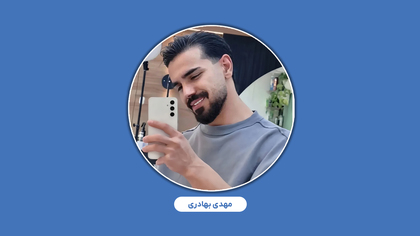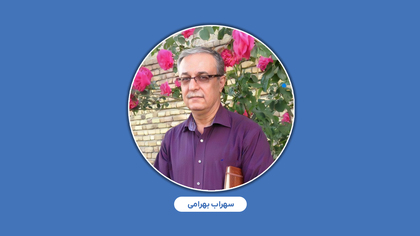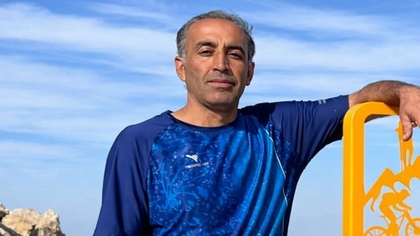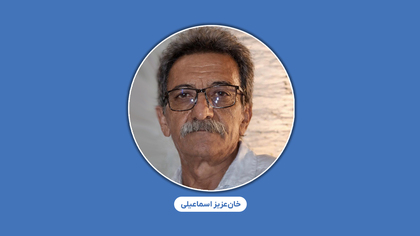Report on the Side Session of the United Nations General Assembly Regarding Ongoing Harassment and Persecution Against Minorities in Iran
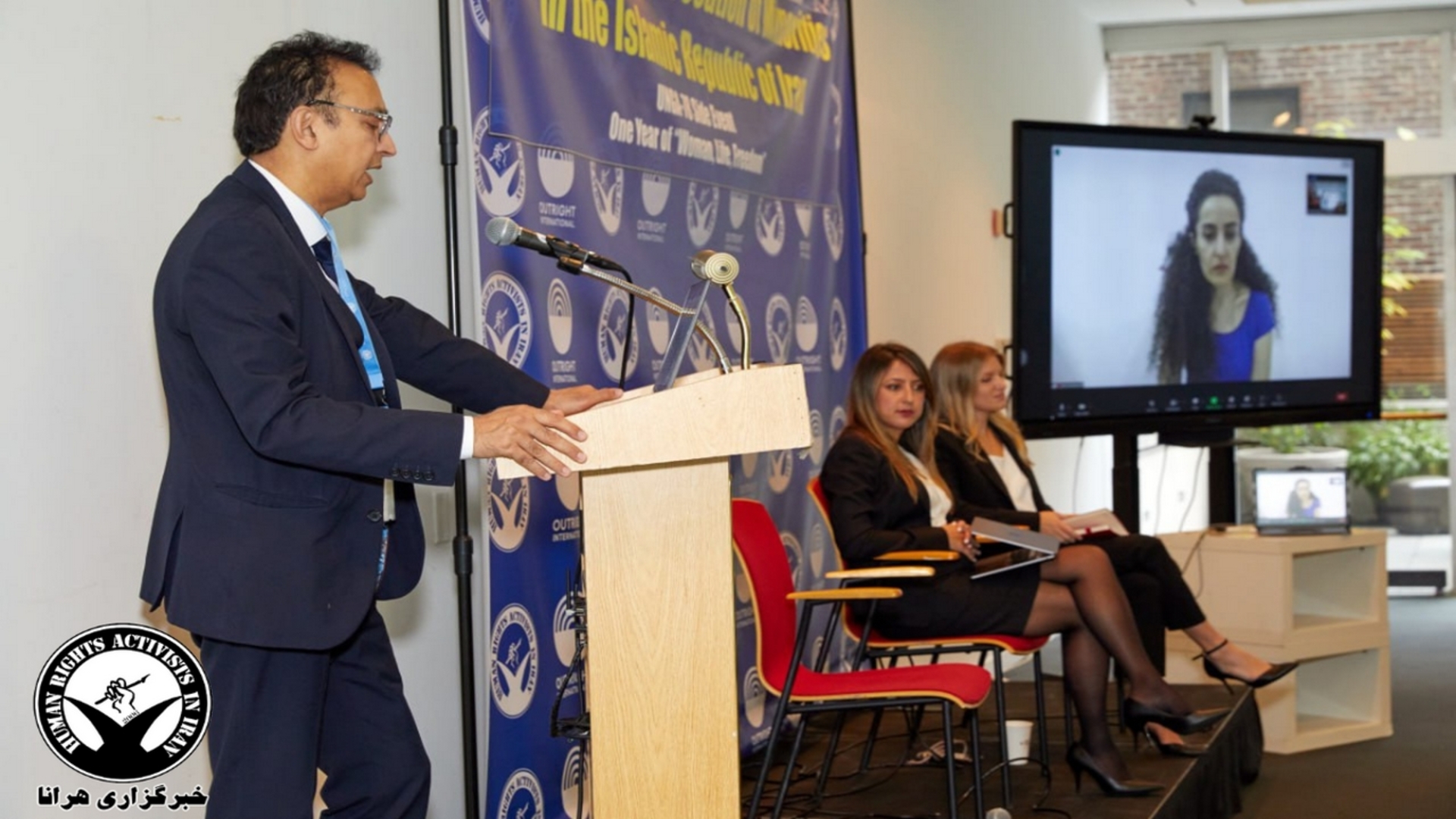
HRANA news agency - An event entitled "One year after women, life, freedom" of continuous persecution against minorities in the Islamic Republic of Iran, was held yesterday by a group of human rights activists in collaboration with the organization Outrights International in New York at the Scandinavian House. This meeting discussed the situation of human rights in Iran.
This event was dedicated to reminding the challenges that minorities are facing in Iran, especially following the "Women, Life, Freedom" protests. The massive protests that started a year ago after the mysterious death of Jina (Mehsa) Amini in custody led to the Iranian government's excessive use of repression and widespread human rights violations.
The panel was moderated by independent reporter Deepa Parnet.
At the beginning of this meeting, messages from brave Iranian human rights defenders who, despite the security difficulties, presented their direct opinions from inside Iran were broadcast to the audience.
Dr. Javid Rahman, the UN special rapporteur on human rights cases in Iran, was the next speaker who presented important points about the challenges and possible ways to improve human rights in the country.
Skyler Thompson, a representative of the Human Rights Activists' Group, then raised three key areas in which the international community can immediately respond to the cycle of human rights violations in Iran. Thompson identified these three key areas as continuing support for UN-led investigations, renewing the role of the Special Rapporteur on Iran, and directly supporting resolutions on Iran. He also emphasized that it is necessary to continue to oppose the violation of human rights in Iran and the violation of international laws, because according to him, "silence is an alliance with the violators."
Simin Fahandej, the representative of the Baha'i community, was the other speaker of the event, who explained the difficulties faced by minorities, especially members of the Baha'i community in Iran. Mrs. Fahandej presented the latest cases of repression of the members of this society and emphasized solidarity on the issue of human rights.
Ewin Mustafazadeh from Kurdpa spoke about his organization's experiences of human rights violations, her words shed light on the depth and breadth of discrimination that different minority groups face daily.
At the end of this event, the consensus was clear: the international community must redouble its efforts to deal with the problems of minorities in Iran.
The event, which was covered live by the media, ended with a message of solidarity and defense of human rights in Iran.
The following is the text of the speech of Ewin Mustafazadeh, the spokesperson of Kurdpa Human Rights Organization, which she presented in this meeting:
Ladies and gentlemen:
I come from Kurdistan and speak of a reality where we are denied and oppressed based on our racial, linguistic, religious, cultural, and gender characteristics. From the government's perspective, our attributes are seen as justifications for systematic discrimination and repression against us.
Under the view of the Islamic Republic, we must either conform to what they desire, or our lives and existence hold no value. Consequently, we easily fall prey to unemployment, poverty, smuggling, landmines, drugs, environmental degradation, the banning of our language and identity, arrests, torture, imprisonment, and even executions with bodies that remain unidentified.
The high cost of our minority status begins with denial and systematically progresses with deprivation, marginalization, underdevelopment, and continues with oppression.
However, we are not merely victims. Despite the multiplied oppression, Kurdistan has a thriving civil society and has been the initiator of the "women, life, freedom" movement in Iran. A movement, which with the role, voice, and centrality of women, within an oppressed minority on the fringes of a country practicing religious and gender apartheid at its highest level, is the result of years of efforts and strides towards "women, life, freedom".
The peak of our struggle, the minorities and the people of Iran for "women, life, freedom," has led to the peak of governmental oppression. Kurdish and Baloch minorities faced the highest level of repression and slaughter from the onset of the protests. Sentences of imprisonment, educational and occupational deprivation, insurance denial, exit bans, bank account blockades, and threats against hundreds of civil activists continue. Families of the deceased are threatened with the killing of their other children to ensure their silence. Various forms of torture, including whipping, broken bones, hanging, humiliation, and degradation, have been reported in detention centers. Many still carry bullets in their eyes and bodies, hidden out of arrest fears. Numerous youths, women, and adolescents live in complete silence after being assaulted. The family of Mahsa-Zhina wakes up nights fearing the desecration of her and her son's graves.
We want nothing more than our human rights and identity. We are not worthless. Why is the cost of denying and repressing us so low in the modern world? The international tools to hold the Islamic Republic accountable are so insufficient that our people now face the highest level of governmental repression and intimidation. They say, the global community doesn't need to support us; they just need to cease their support and appeasement of the Islamic Republic.
We are confident that the Islamic Republic has completely lost its legitimacy among our minority and now survives only through maximum repression and militarized governance.
Stand with us on the path of "women, life, freedom." The Islamic Republic, other than degrading human dignity and symbolizing apartheid, has nothing to offer to this world.
Women, life, freedom!
